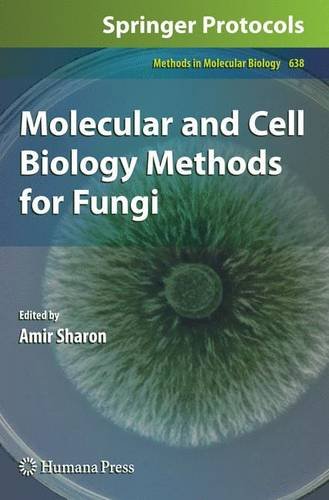

Most ebook files are in PDF format, so you can easily read them using various software such as Foxit Reader or directly on the Google Chrome browser.
Some ebook files are released by publishers in other formats such as .awz, .mobi, .epub, .fb2, etc. You may need to install specific software to read these formats on mobile/PC, such as Calibre.
Please read the tutorial at this link: https://ebookbell.com/faq
We offer FREE conversion to the popular formats you request; however, this may take some time. Therefore, right after payment, please email us, and we will try to provide the service as quickly as possible.
For some exceptional file formats or broken links (if any), please refrain from opening any disputes. Instead, email us first, and we will try to assist within a maximum of 6 hours.
EbookBell Team

4.4
42 reviewsWith the development of fungal transformation systems and the deciphering of an increasing number of fungal genomes, this diverse clade of heterotrophic eukaryotic organisms has proven to be ideal for molecular work and highly serviceable as model systems to study basic processes with results that are applicable to many organisms, including humans. In Molecular and Cell Biology Methods for Fungi, experts in the field provide an up-to-date set of practical protocols covering a range of frequently used methods used to study molecular and cellular aspects of fungal biology. The included classical protocols such as transformation systems and traditional protein analysis methods, which have been widely used for many years, alongside the most advanced techniques such as genome amplification, whole genome knockout methods, and sophisticated in vivo imaging techniques will prove to be easily adaptable and useful in a wide range of species. Written in the highly successful Methods in Molecular Biology™ series format, chapters include introductions to their respective topics, lists of the necessary materials and reagents, step-by-step, readily reproducible laboratory protocols, and notes on troubleshooting and avoiding known pitfalls.
Comprehensive and up-to-date, Molecular and Cell Biology Methods for Fungi seeks to provide cutting-edge techniques in order to aid both experienced fungal research laboratories as well as those that are interested in using fungi as hosts to study their favorite genes.